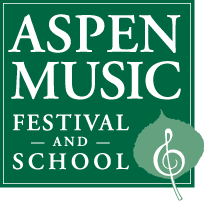« Finding the Niche | Main | Classical Music is in good shape but its purveyors have problems »
July 25, 2006
Change: It's always been the name of the game
by Andrew DruckenbrodEvolution. Isn't that what this is all about? If we did manage to ossify the music industry so that this amorphous thing called classical music and its institutions never changed, musical life would be so much poorer for it. Not because what we have now isn't worth keeping, but because of what we would miss out of in the future. It's the same argument I apply to those who don't (think they) like new music. In fact, I always get a queasy feeling when people talk about the good ole days in general and predict a dire future...I have never bought into that. By now we'd all be in hell if it were the case.
No, I agree with Frank that there is so much out there now in terms of alte, canonical and new music, both live and in recordings, there's no time for it all, and I would hardly want to live in any different time. It's simply human nature to fear the future and worry about the loss of the familiar. The same goes for concerns about music institutions. The past is really not as great as it seemed. A lot of the solutions being posed here and elsewhere, some so common sense that it's amazing they aren't being widely adopted, are concerned with how to preserve our intuitions in face of the changing world, but I think it would be better to find ways to allow the institutions to evolve, as well. So, yes, the field is having trouble maintaining itself for various reasons, but maybe that's what always happens, because it is not meant to maintain itself, but to change.
More later. And more specifics. This is my underlying feeling on this, probably reflecting that most of my young career has happened after all the so called golden ages of classical music, even the CD boom, had already expired. So I have gotten a little tired of hearing about how horrible everything is and how I am supposed to have missed out on all the good times. Also, I feel for the real people in this, the musicians and composers (and critics and administrators) whose livelihoods are at stake, and I want to post about this later, but as far as aesthetics and institutions, change is good - in fact, it is inevitable.
--Andrew Druckenbrod
Posted by adruckenbrod at July 25, 2006 7:12 AM
COMMENTS
Andrew's right that change is the only constant. Perhaps the biggest change has been the niches that the audience now put themselves into. Many operagoers never go to a symphony concert. Many orchestra subscribers don't hear live opera. Early-music connoisseurs only want to hear that genre, and new-music listeners remain deaf to the virtues of early music.
The quote-unquote nicheing or nicheification of listeners may be the biggest threat to major symphony orchestras, which have to fill thousands of seats 3 times or more per week. Their offerings must appeal to more listeners if they're going to make it. So the health of classical music is one thing, but the the health of institutions is quite another, as smaller groups who provide the Clement Janequin or Sciarrino their fans crave can still draw an audience relatively easily.
Posted by: Marc Geelhoed at July 25, 2006 3:21 PM
Would not comment on decline of classics, I do not believe it, but classical Rock and some kimds of metal are closer to classics than any other genre. I think these genres primarily share their roots, being created not for mere entertainment, though recently not much rock tends to be thought-provoking. 'http://musics-shop.info/, not a bad resource, where I have the possibility to compare.
Posted by: julia at February 19, 2007 7:09 AM
Post a comment
Tell A Friend


